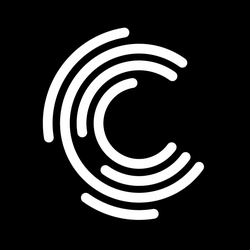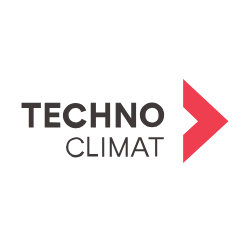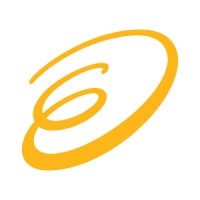
Closed
MTRIC — PSO SME
Last Update: October 27, 2025
QC, Canada
Funding for industrial research projects
Grant and Funding
At a glance
Funding available
Financing goals
Reduce the ecological footprint
Integrate new technologies
Optimize production processes
See more
Eligible Funding
- Maximum amount : 1,500,000 $
- Up to 40% of project cost
Timeline
- Closing date : May 23, 2025
Eligible candidates
Eligible Industries
- Mining, quarrying, and oil and gas extraction
- Manufacturing
Location
- Quebec
Legal structures
- For-profit business
Annual revenue
- All revenue ranges
Organisation size
- 249 employees maximum
Audience
- All groups
Overview
Get a grant of up to $500,000 to cover up to 40% of eligible costs if your SME partners with a research centre on a project involving metal processing.
Activities funded
- Collaborative research and development projects between metal transformation companies and research institutions.
- Development or improvement of metal transformation processes, including automation and digital innovation.
- Design and commercialization of advanced metallic products or alloys.
- Projects aimed at reducing environmental impact, such as lowering greenhouse gas emissions or enhancing resource efficiency.
- Initiatives supporting the transfer of research results to industry to boost competitiveness and productivity in Quebec's metal transformation sector.
Examples of admissible projects:
$ 200,000
Development of powder metals for lightweight structures
$ 200,000
Innovation in 3D printing of metallic structures
$ 200,000
Reduction of pollutant emissions in metal processing
$ 200,000
Development of an energy-efficient metal smelting process
$ 200,000
Automation of metalcasting processes using advanced robotics
$ 200,000
Design and testing of a new aluminum alloy
Eligibility
- The applicant company must be a regular member of CRITM during the project.
- The business must operate in the metal transformation sector (including extraction, production, finishing, recycling, etc.).
- The company must be legally constituted under Quebec or Canadian law and registered with the Quebec Enterprise Register.
- The project must be associated with eligible metals (such as steel, aluminum, or minerals deemed critical/strategic by the Government of Quebec) or essential non-metallic substances related to metallurgical processes.
- If the company is a SME, it must have its head office in Quebec, employ 249 or fewer employees worldwide, and its staff or subcontractors must predominantly work from Quebec.
Who is eligible?
- Companies involved in metal transformation (Extraction, Concentration, Primary, First, Second and Third Transformation, Finished Metal Products, Metal Recycling)
- Small and Medium-sized Enterprises (SMEs) legally constituted under Canadian or Quebec law and registered in the Registraire des entreprises du Québec
- Large Enterprises involved in the metal transformation sector
- Eligible research organizations collaborating with the metal transformation industry (universities, CCTTs, recognized research centers)
- Companies associated with critical and strategic minerals (e.g., steel, aluminum, nickel, titanium, magnesium, copper, zinc, rare earth elements, and others as identified by the Quebec government)
Who is not eligible
- Companies directly or indirectly controlled by a government, municipal entity, or Crown corporation.
- Businesses listed as ineligible for public contracts in Quebec.
- Companies under the protection of the Companies' Creditors Arrangement Act or the Bankruptcy and Insolvency Act.
Eligible expenses
- Salaries, wages, and employee benefits directly related to the project.
- Scholarships for students involved in the project.
- Purchase of supplies, consumables, and necessary materials.
- Purchase or rental of equipment (up to 25% of total eligible expenses; maximum value of $25,000 per piece before taxes).
- Professional fees, including limited consulting and subcontracting contracts.
- Travel and accommodation expenses related to project activities (in compliance with government standards; international travel for Quebec researchers and students capped at 15% of total eligible expenses).
- Expenses for disseminating project results and knowledge-sharing activities.
- Intellectual property management and related operating costs.
- CRITM management fees.
Eligible geographic areas
- Quebec
Selection criteria
- Degree of innovation of the product or process, demonstrating clear novelty compared to existing solutions.
- Capacity and commitment of project partners, including the financial and operational involvement of participating companies.
- Quality and complementarity of the research team and public-private partnership.
- Anticipated technological and commercial impacts for partner companies.
- Contribution to the training of students and highly qualified personnel, and other economic benefits for Quebec.
How to apply
1
Membership in the CRITM
Ensure that all project partners are regular members of the CRITM.
2
Project Alignment
Check that the project is related to one or more research axes of the CRITM.
3
Preparation of the documentation
- Prepare a funding request from a recognized research institution using the specific forms.
- Ensure that industrial partners provide a letter of commitment with their cash and in-kind contributions.
4
Calculation and validation of the budget
- Structure the financial setup of the project while respecting funding standards (cash and in-kind contributions).
- Include budget simulations that comply with CRITM rules.
5
Project Submission
- Use the project submission form available on the CRITM website to send the documentation.
- Submit the project before the announced deadlines.
6
Confirmation and follow-up
Contact the CRITM for any clarification or additional information.
Additional information
- All partners in the project must obtain or show progress toward a Certificate of Francisation from the Office québécois de la langue française if they have 50 or more employees.
- Projects involving companies outside Quebec can be eligible provided the project is conducted in Quebec and includes Quebec-based partners.
- CRITM does not claim intellectual property rights but requires partner agreements to address intellectual property and results management.
- Regular updates to program conditions may occur; applicants are advised to confirm details with CRITM during the application process.
Contacts
jfstcyr@critm.ca
418 446-7187
QC, Canada
Apply to this program
Frequently Asked Questions about the MTRIC — PSO SME Program
Here are answers to the most common questions about the MTRIC — PSO SME. This section explains what the program is, how much funding is available, eligibility requirements, application deadlines, and other important details to help you determine if this grant is right for your business.
What is the MTRIC — PSO SME?
How much funding can be received?
What expenses are eligible under MTRIC — PSO SME?
What is the deadline to apply?
Is the MTRIC — PSO SME a grant, loan, or tax credit?
Who are the financial supporters of the MTRIC — PSO SME?
Who is eligible for the MTRIC — PSO SME program?
Who can I contact for more information about the MTRIC — PSO SME?
Where is the MTRIC — PSO SME available?
Apply to this program
More programs like this

Grant and FundingOpen
ÉcoPerformance — Recommissioning of building mechanical systems
Gouvernement du QuébecFunding to optimize the operation of building mechanical systems

Loans and Capital investmentsOpen
Financing to respond to the offensive of new tariffs and for initiatives for resilient and exporting companies (FRONTIERE)
Investissement Québec (IQ)Supports Québec exporters impacted by new U.S. tariffs

Grant and FundingOpen
Electricity Management Systems
Hydro-QuébecMoney for energy management systems in Quebec

Grant and FundingClosed
GHG Challenge Program - Industry
Environnement Québec (MELCC)Supports major industrial projects reducing greenhouse gas emissions

Grant and FundingOpen
Economic development program to help revitalize territories (DEPART)
Investissement Québec (IQ)DÉPART supports economic diversification and growth in targeted areas

Grant and FundingOpen
Innovative Projects Program
Hydro-QuébecSupports innovative, energy-efficient projects for multi-building developments

Grant and FundingOpen
Technoclimat
Environnement Québec (MELCC)Financial assistance for the demonstration of new technologies in Quebec

Partnering and CollaborationGrant and FundingExpert AdviceSuspended
Financial support to assess your energy use Hydro Quebec
Hydro-QuébecUp to $50,000 for energy performance analysis and optimization

Grant and FundingOpen
Enbridge Gas Quebec — Custom-made project
Enbridge Gas QuebecSupports energy-saving projects using natural gas in buildings

Tax CreditsOpen
Additional deduction for transportation costs for manufacturing SMEs
Revenu QuébecTax deduction for manufacturing SMEs' transportation costs in remote areas
Sign up to our platform to access the MTRIC — PSO SME information sheet for free
Get access to 4,000+ programs, practical guides, personalized alerts, and an AI assistant to support your grant applications.